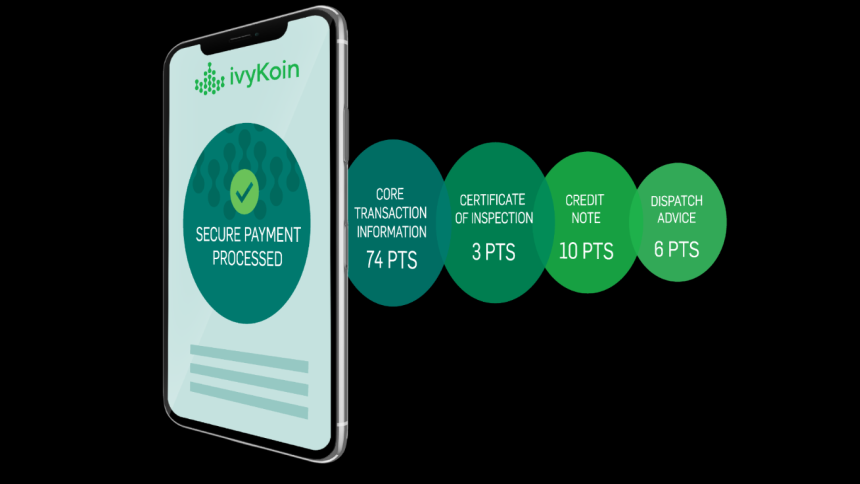Reason to trust

How Our News is Made
Strict editorial policy that focuses on accuracy, relevance, and impartiality
Ad discliamer
Morbi pretium leo et nisl aliquam mollis. Quisque arcu lorem, ultricies quis pellentesque nec, ullamcorper eu odio.
Introducing ivyKoin, a newcomer to the cryptocurrency world that hopes to rival Ripple in the interbank payments space. The coin is specifically aimed at bridging the divide between banks, cryptocurrency, and customers —facilitating secure and transparent business payments on a global scale.
ivyKoin will look to develop a blockchain based-cryptocurrency that will allow senders to voluntarily de-anonymize transactions. The rationale behind this feature is to make the coin palatable to banks and financial institutions bound by KYC (Know Your Customer), KYT (Know Your Transactions), and AML (Anti-Money Laundering) requirements, compliance issues that thus far have seen most turn a cold shoulder to cryptocurrencies.
According to the company’s website, it is intended that the ivyKoin Network will function through the use of a dual network architecture, where senders of tokens operate on a public network (ivyKoin Public Network), and parties that provide the financial settlement to fiat currency participate on a private network (ivyKoin Private Network). KYC/KYT/AML data supporting transactions will be captured in cryptographic containers that are generated from the ivyKoin Public Network interaction with the ivyKoin Network smart contracts and support the activities of the ivyKoin Private Network participants in facilitating transaction settlement. This data will be stored and accessible to the financial institution and governing regulators of the fiat balance recipients.
To read ivyKoin’s white paper, please follow this link.
The platform has planned architectural improvements compared to Ripple — its closest peer and a leading global Altcoin, following are some examples:
- Technology is designed to break KYC, KYT, and AML barriers between cryptocurrency and the traditional financial system (Ripple has no KYC, KYT, and AML included in core design).
- It has up to 74+ KYC and 120+ KYT data points and customer files per transaction (Ripple’s KYC/KYT data is not associated with cryptocurrency).
- It has a decentralized system of transaction validation (Ripple has a centralized system of transaction validation).
- The public coin economics are driven by the utility of the coin, which is on a public ledger (Ripple’s coin economics are not transparent; large, privately held reserves).
IvyKoin roadmap:
First Half of 2018: Token Generation Event (Q1 2018), IVYA available publicly, Test Network Live with Smart Contracts, KYC/KYT Transaction containers, ivyKoin public interface live, Establish partnerships with Financial Institutions, Discussions with US Regulators
Second Half of 2018: Public network live, ivySend live with legacy interbank systems, ivyKoin direct IVYA sales and market operations live, ivyReceive live with IVYB interbank funds transfer, Accelerate Financial institution partnerships
2019: All fiat/crypto conversions live, Enterprise authorization to containers, First financial intermediaries
For updates, see ivyKoin’s website, join ivyKoin on Telegram, or follow ivyKoin on Twitter.


















